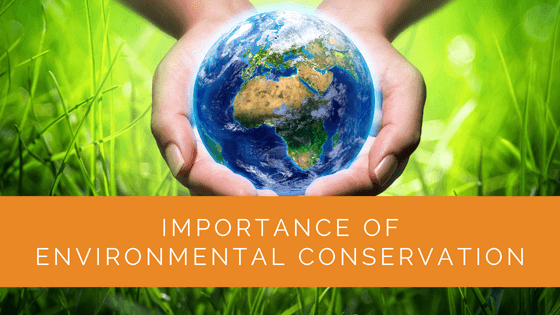In a world increasingly confronted by the tangible effects of environmental degradation, the necessity for environmental conservation emerges as a critical agenda for our times. This article delves into the profound implications and urgency of preserving our natural world, illustrating the intrinsic value of diverse ecosystems and their indispensable role in sustaining human life and well-being. By examining the multifaceted aspects of environmental conservation, from preventing the misuse of natural resources and safeguarding wildlife to addressing pressing environmental issues and enhancing human health, this article underscores the interconnectedness of our actions with the health of our planet. As we navigate the complexities of sustainable development and conservation efforts, it becomes clear that every small step counts. This exploration aims to elevate awareness and inspire collective action, emphasizing that we are responsible for fostering a harmonious balance with nature.
Contents
- 1 Key Takeaways
- 2 What are the Major Underpinnings of Environmental Conservation?
- 3 Reasons Behind the Rush: Why is Environmental Conservation a Matter of Urgent Importance?
- 4 The Close Connection Between Environmental Conservation and Sustainable Development
- 5 Expert Insights From Our Solar Panel Installers About the Importance of Environmental Conservation
- 6 Conserving the Environment: One Step at a Time
Key Takeaways
- Environmental conservation is vital for protecting the planet from the consequences of human activities and pollution, which threaten biodiversity and the entire ecosystem.
- Environmental conservation is urgently important due to the finite nature of natural resources, such as fossil fuels and freshwater, and the need to prevent environmental issues like global warming and habitat loss.
- Conservation efforts safeguard the environment and directly impact human health by preventing the spread of diseases and preserving the sources of life-saving medicines.
What are the Major Underpinnings of Environmental Conservation?
Environmental conservation involves protecting the environment against human activities and pollution, the leading causes of species extinction and environmental degradation. Since we all rely on each other for sustenance, conservation is essential for preserving and assisting plants and animals.
We can breathe and respire easily because of trees’ ability to transform the carbon dioxide created by factories into oxygen. When a species disappears and becomes extinct, it implies that it will never again exist and cannot be examined by analytical minds or explored by fascinated eyes.
Additionally, such ecological loss or damage would destabilize the food chain, damaging the entire ecosystem.
In terms of restoring and safeguarding the biodiversity found within our natural ecosystems and the environmental assets that are still accessible, there is still much work to be done. Environmental protection is a catch-all phrase that refers to everything we do to save the environment and preserve its natural resources for the benefit of all living things.
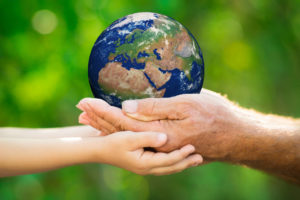
Reasons Behind the Rush: Why is Environmental Conservation a Matter of Urgent Importance?
Consider yourself stranded on a remote island with just a hamburger, a side of hash browns, and a banana for food. Would it be sensible to consume every last bit of your exclusive supplies in a single day? Not! A wise individual would stretch the resources further.
In the same vein, protecting precious natural resources here on Earth is essential because, should we run out, we cannot acquire them from anywhere else. After all, we won’t get to travel across the galaxy to fetch a glass of drinking water every day.
Our environment is heading toward the worst-case scenario because of the rise in natural and man-made threats. There are numerous reasons to protect our ecosystem and aid in its preservation. The significance of environmental conservation is thus discussed in more detail in the following section.
Preventing the Misuse of Natural Resources
Resources are used more frequently as a result of the burgeoning human population. Air, agricultural land, fossil fuels, water, sunlight, and metal ores are the primary natural resources we depend on for survival and comfort.
Since fossil fuels account for most of our energy, their shortage could cause unanticipated difficulties worldwide. This is also because these fuels take millions of years to form.
Furthermore, only 3% of the world’s water bodies are freshwater resources. Only 1% of it can generate power, water crops, and everyday living. How we exploit these bodies may potentially cause a disaster for our future generations.
The rising deforestation and associated human activities are to blame for exploiting our forest areas and their inhabitants, minerals, and water quality. It also causes several additional environmental problems.
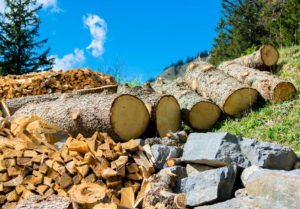
Safeguarding Wildlife
Conservation aims to protect wildlife and increase the advancements in biodiversity. By doing so, different animal and plant species won’t go extinct and will be preserved for future generations. Additionally, we’ll be able to maintain a thriving ecosystem.
Some species, such as those seen in zoos and aquariums, require human assistance to live while not in their natural habitat. As a result, their survival is significantly threatened by the degradation of their natural environments.
The vulnerability of migratory species and those that live in several natural habitats is also a concern—protecting these habitats aids in avoiding harm to the ecosystem.
Even a minimal effort to protect wildlife is increasingly crucial as more species are in danger of extinction.
Addressing Environmental Issues
It is no secret that urgent measures must be taken to protect the planet’s future, given climate change’s damage to our natural ecosystem. We must minimize the adverse environmental effects of human activity to protect the planet for future generations.
Global warming is a highly pressing environmental issue. Some of its most adverse repercussions include glacier melting, acid rain, ocean acidification, climate change, rising sea levels, and the greenhouse effect. Looking closely, we can see that the slow rise in global temperature combines our irresponsible behavior and a population explosion.
Our most potent weapon in the drive against global warming is nature itself. Via conservation efforts, we can fully exploit nature’s contribution to the required mitigation action to prevent a catastrophic temperature rise.
The struggle against climate change and preserving our communities involves everything from the lush forests to our shoreline. Thus, we must take all necessary measures to safeguard them.
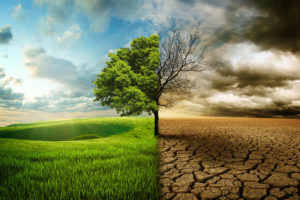
Enhancing the Protection of Human Life
Conservation efforts’ effect on human health is one of their primary justifications. They play an enormous role in developing the medicines we rely on and halting the spread of new diseases.
The presence of animal habitats in the wild is a barrier because it stops infectious diseases from spreading from animals to people.
Habitats previously untouched have now been eliminated to make room for people and crops. This has facilitated the spread of infections to humans by mixing wild and domesticated animals. The Ebola outbreak is one such illustration. It is a zoonosis (an animal illness that can infect humans) and is most likely transmitted to people by bats.
Many of our medications come from compounds that plants and animals create. Therefore, by preserving nature, we also preserve the life-saving medicines we depend on, such as anti-cancer medications.
Raising Consciousness
Environmental conservation is essential for several reasons, not the least of which is raising public awareness. Our decades-long unethical behaviors have caused all the ecological problems we can see now and have put us in the direst circumstances we can conceive.
The first step in every environmental conservation or preservation endeavor is to recognize its importance. This is so that the outcomes might affect our activities’ cumulative influence.
Furthermore, we can rapidly mitigate the effects if we, as the responsible population, begin raising awareness by participating in various environmental conservation activities.
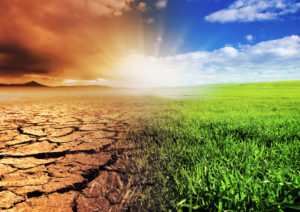
The Close Connection Between Environmental Conservation and Sustainable Development
Sustainable development is the process of addressing the needs of the present without sacrificing the capacity of subsequent generations to address their own needs.
To achieve sustainable development and environmental conservation, it is necessary to convince consumers and the sector to adopt a balanced ratio perspective. This approach should aim to get the best of both worlds rather than an either/or mindset.
Following such a strategy is exceedingly challenging since modern society must embrace a sacrifice-making approach. To achieve this, all parties must agree to follow guidelines, incentive schemes, and tax breaks that encourage sustainable development and establish environmental protection priorities in various places that will benefit surrounding communities.
Expert Insights From Our Solar Panel Installers About the Importance of Environmental Conservation
Environmental conservation is vital for sustaining the ecosystems that solar energy relies on. Protecting our natural resources ensures a cleaner, greener future for all.
Senior Solar Installer
Every solar panel we install contributes to reducing our carbon footprint, but without conservation efforts, the impact would be minimal. We need to protect the environment to truly harness the power of renewable energy.
Lead Solar Technician
Installing solar panels is just one part of the equation. Environmental conservation efforts are essential to ensure the long-term viability and effectiveness of solar energy solutions.
Solar Energy Specialist
Conserving the Environment: One Step at a Time
In sum, we must not overlook the urgent subject of conservation. We move further away from a thriving planet as we clear forests and make the skies smog-filled.
Future generations cannot be burdened with today’s environmental problems. To this end, we all have a responsibility to protect the environment. This does not obligate you to tie yourself to a tree. Alternatively, consider recycling, closing the faucets, or planting a sapling.
Making a difference doesn’t need us to go globally and back. To use an economic metaphor, it is the marginal adjustments we make that ultimately matter.
Therefore, the next time you encounter someone holding a placard that exclaims “Save the Trees,” don’t dismiss them as a radical vegan enthusiast. Instead, inquire how you can support the cause!
About the Author
Solar Panels Network USA stands at the forefront of solar energy solutions, driven by a team of seasoned solar engineers and energy consultants. With over decades of experience in delivering high-quality solar installations and maintenance, we are committed to promoting sustainable energy through customer-centric, tailored solutions. Our articles reflect this commitment, crafted collaboratively by experts to provide accurate, up-to-date insights into solar technology, ensuring our readers are well-informed and empowered in their solar energy decisions.

